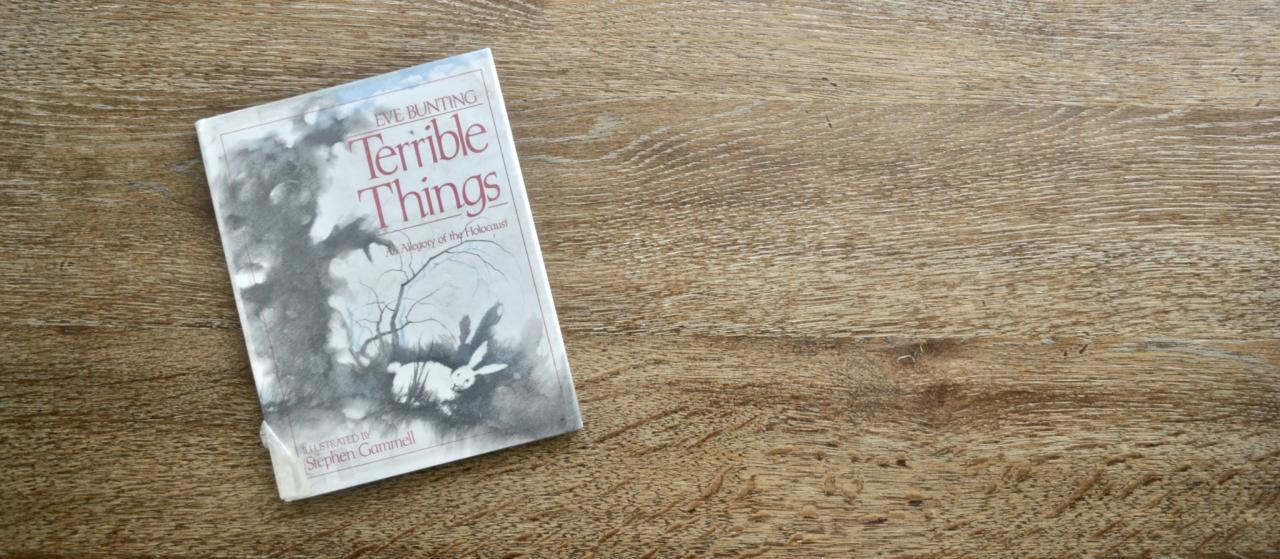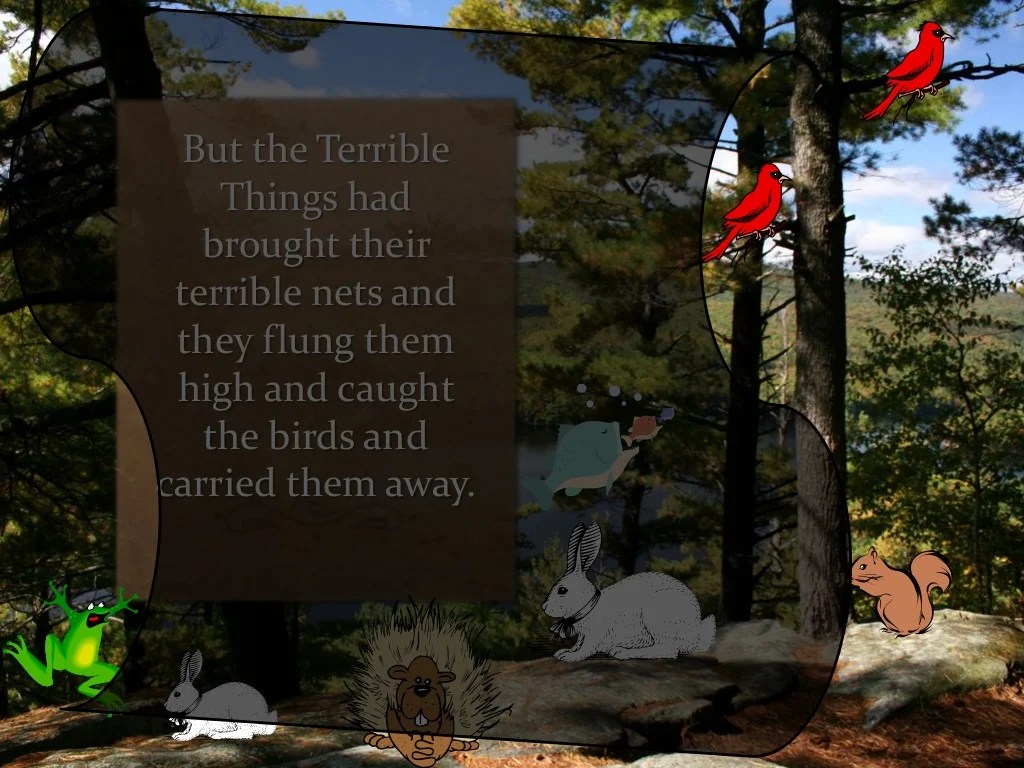The terrible things an allegory of the holocaust – The Terrible Things: An Allegory of the Holocaust is a gripping literary work that delves into the horrors of the Holocaust through a powerful and evocative narrative. This novel employs literary techniques to convey the unspeakable atrocities and profound human suffering inflicted during this dark chapter in history.
Through the lens of allegory, The Terrible Things unveils the complexities of the Holocaust experience, exploring themes of loss, resilience, and the search for meaning amidst unimaginable darkness.
Historical Context: The Terrible Things An Allegory Of The Holocaust

The Holocaust, a systematic genocide perpetrated by Nazi Germany and its collaborators, remains one of the darkest chapters in human history. From 1941 to 1945, the Nazis and their allies ruthlessly persecuted and murdered millions of people, including six million Jewish individuals.
The Holocaust had a profound impact on the world, leaving an enduring legacy of trauma and loss.
Literary Analysis
“The Terrible Things,” a novel by Eve Bunting, serves as a powerful allegory of the Holocaust. Bunting employs literary techniques such as symbolism, allegory, and metaphor to convey the horrors and complexities of this tragic event.
Characterization
The novel features several characters who represent different aspects of the Holocaust experience:
- Sarah: A young Jewish girl who endures the horrors of a concentration camp.
- Erika: A German girl who struggles to understand the atrocities committed in her name.
- Dr. Müller: A Nazi doctor who carries out medical experiments on Sarah and other prisoners.
Themes, The terrible things an allegory of the holocaust
“The Terrible Things” explores profound themes that resonate with readers and survivors of the Holocaust:
- Loss and Grief: The novel portrays the immense loss and pain experienced by the victims of the Holocaust.
- The Search for Meaning: The characters grapple with the question of how to find meaning and hope in the face of such unspeakable suffering.
Cultural Impact
“The Terrible Things” has had a significant impact on Holocaust remembrance and education:
- Raising Awareness: The novel has helped to raise awareness about the Holocaust and its consequences.
- Promoting Dialogue: The book has sparked important conversations and dialogue about the Holocaust and the lessons it holds for humanity.
FAQ Overview
What is the historical context of The Terrible Things?
The novel is set during the Holocaust, a period of systematic genocide perpetrated by Nazi Germany against the Jewish population of Europe.
How does the novel employ literary techniques to convey the horrors of the Holocaust?
The author uses symbolism, allegory, and metaphor to create a vivid and haunting portrayal of the Holocaust’s atrocities.
What are the central themes explored in The Terrible Things?
The novel explores themes of loss, grief, the search for meaning, and the resilience of the human spirit in the face of unimaginable suffering.


